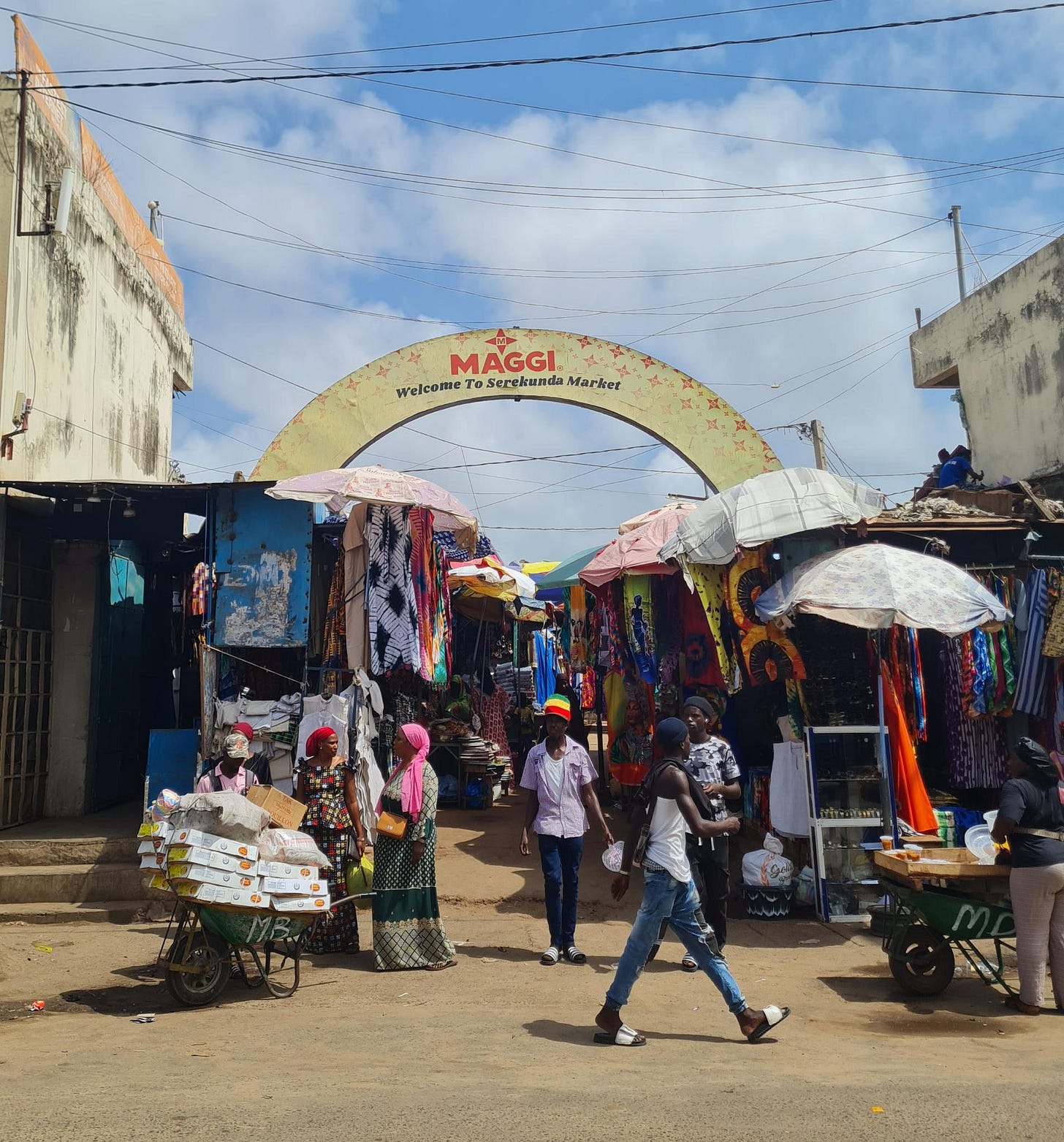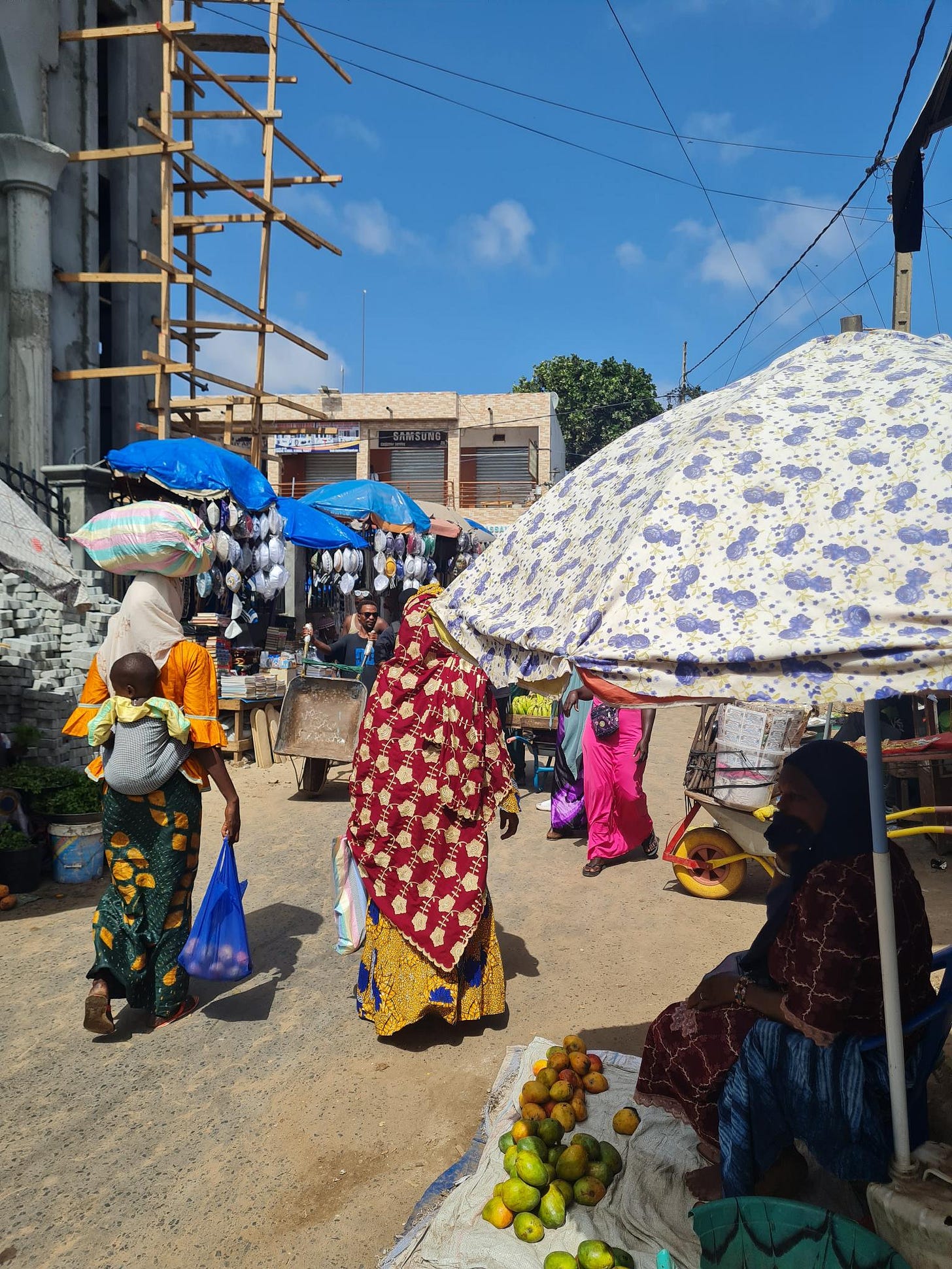Paid research opportunity: Exploring citizens’ assemblies across Africa
We’re looking for someone to analyse and compare citizens’ assemblies conducted across Africa. This is a paid position, due to begin in August and finish at the end of 2025.
DemNext is excited to share this unique research opportunity with our network. We're looking for a researcher based in Africa or Europe with a strong grasp of deliberative democracy and governance, with preference given to candidates from Africa, or with lived experience on the continent.
The study will combine insights from a convening of deliberative practitioners in The Gambia with case studies, document analysis, and targeted interviews.
Our research question is: What design considerations and contextual factors are similar and different for citizens’ assemblies across different parts of Africa, and what enabling conditions need to be in place to ensure impact?
Our goal: to produce fresh theoretical insights and practical guidance for policy makers and practitioners across the continent.
Scroll down for full details on the research scope, timeline, editorial process, and how to apply.
Alternatively, please click here to download a PDF version.
If you have any questions or would like a short, informal chat about this research project, please email Hannah Terry, Cities Programme Coordinator, on hannah@demnext.org

Key research components
Structural comparisons - Examine assembly design elements across contexts (e.g., participant selection methods, size, duration, assembly question, commitment to respond from decision-makers). Reflect on the relationship to the OECD Good Practice Principles for Representative Deliberative Processes, which were developed based on practices in OECD countries. Are there any considerations for different / additional factors that need consideration in African countries? What are the barriers to participation in African contexts?
Issue focus - Analyse the range of policy areas addressed, such as constitutional reform, environmental challenges, electoral systems, and public service delivery.
Implementation patterns - Investigate how assembly recommendations were acted upon, including relationships with formal institutions and barriers to implementation.
Public perception and legitimacy - Assess how assemblies were perceived by citizens, including views on representativeness, fairness, transparency, and legitimacy.
Case mapping and in-depth analysis - Provide a comprehensive overview of all documented citizens’ assemblies in Africa, with detailed studies of notable cases, such as:
Mali: Farmers' assembly on the introduction of GMOs
Malawi: Salima District Council and the Constituency Development Fund
The Gambia: Kerewan assembly
South Africa: Pilot citizens’ assembly - Stellenbosch University (forthcoming)
Analyse how these assemblies fit within the broader spectrum of citizen participation practices across Africa.
Success factors - Identify contextual and procedural elements that correlate with effective outcomes. Identify key decisions in the design of the assembly process that were a direct response to the specific contextual conditions.
Challenges and mitigation - Systematically document obstacles faced by assemblies and the strategies used to overcome them.
Analyse the current landscape and potential growth opportunities for citizens' assemblies in Africa - focusing on existing institutional capacity, facilitation networks, and research foundations that could support their expansion. Identify and evaluate the most effective leverage points for scaling these deliberative mechanisms.
Publication and editorial process
Throughout the timeline, the researcher will be expected to check in with the project team, and provide timely updates about the progress of the paper. The final research paper will be edited in collaboration with the DemNext team. For guidance on style, length, and scholarly rigour, please refer to the existing research papers available on our website.
We are committed to producing research that is accessible to a broad audience. While the substance and clarity of the research are the responsibility of the author, we will handle the final formatting and ensure consistency with house style.
Following publication, the author will be invited to present their paper and lead a discussion during a webinar hosted by DemNext. The resulting research will be considered joint intellectual property of the author and DemNext.
Funding scope and duration
The available budget for this research paper is a maximum of EUR 10,000 (including VAT).
A proposed timeline is outlined below; however, specific dates can be discussed and adjusted in coordination with the project team.
The only fixed commitment is to visit The Gambia in October 2025 (exact dates to be confirmed): travel (economy class) and accommodation expenses for this trip will be covered by DemNext. There may be some scope for additional travel or research costs (beyond the trip to The Gambia), strictly subject to agreement in advance.
The DemNext Cities Programme is supported by the National Endowment for Democracy, who is the funder for this research project.
✅ Deadline for submission of proposals: 25 July 2025
✅ Convening of practitioners: October 2025
✅ First draft of paper: Early November 2025
✅ Publication of research and webinar: December 2025
Proposal requirements
Name, CV, and affiliation of author.
Introduction - Tell us more about yourself and why you are interested in completing this research with us (250 words max).
Research - Provide a concise outline of your proposed methodological approach. You are encouraged to demonstrate familiarity with the subject, suggest refinements to the research questions, or propose additional avenues of inquiry (750 words max).
Submit 1–2 samples of your written work that best reflect your research, analytical, or writing abilities (please share links or PDF documents).
Include the name and contact information of one reference who can speak to your research abilities or relevant experience.
Your proposed budget.
Proposals will be evaluated based on the following criteria:
Relevant expertise - Demonstrates strong knowledge of deliberative democracy and governance in Africa; based in Africa or Europe, with preference given to candidates from Africa, or with lived experience on the continent.
Methodological rigour - Presents a clear, feasible mixed-methods approach with thoughtful refinement of research questions.
Research and writing quality - Writing samples show strong analytical and communication skills aligned with DemNext’s standards.
Contextual and practical insight - Addresses both theoretical and practical goals, with sensitivity to diverse African governance contexts.
Proposals must be submitted in English by 25 July 2025. Please submit your proposal to hello@demnext.org
If you have any questions or would like a short, informal chat about this research project, please email Hannah Terry, Cities Programme Coordinator, on hannah@demnext.org
📡 On our radar
The assembly website for Vilnius, Lithuania, is now up and running. This work is part of our Cities Programme, which you can learn more about here.
Demos’ Upgrading Democracy report champions a new deal to rebuild citizen–state trust through participatory, deliberative reforms - offering a blueprint to revitalise democracy amid a global democratic emergency.
Oxford researchers call for citizen-led approaches to redesign cities where people and nature can thrive together - through greener spaces, better water systems, and shared stewardship.
A deliberative forum in Pennsylvania showed that informed, civil dialogue can reduce polarisation and shift public views on immigration, climate, and voting policy.
A new INLOGOV report calls for rewiring local government by embedding citizen engagement - through deliberation, co-design, and capacity-building - to restore trust and responsiveness.
LAist highlights the power of civic assemblies - demonstrating how everyday people, not politicians, can help solve tough urban challenges in Los Angeles.
COP30 has endorsed Assemblis, a digital Global Citizens’ Assembly platform, to enable inclusive global public input into climate action ahead of the Brazil summit.
Stanford’s Deliberative Democracy Lab is launching a forum this year where the public will deliberate with leaders from Cohere, Meta, Oracle, and PayPal on the future of AI agents—helping shape policy and product direction.
🐝 Upcoming events
15 September 2025, London, UK
DemNext International Advisory Council Member, Jon Alexander, meets DemNext CEO, Claudia Chwalisz and Legislative Theatre practitioner, Katy Rubin, to explore modes of democracy that seek to involve and work with people, not deliver for them.
25 September 2025, Berlin, Germany
DemNext Cities Programme Lead, James Macdonald-Nelson, will be moderating a panel discussion on democratic processes, as part of the programme Democratic Design - Space for cooperation, collaboration and compromise.
11 October 2025, London, UK
Claudia Chwalisz will be hosting a workshop as part of the European City Leadership Initiative.
15 - 17 October 2025, Brussels, Belgium // 15 - 16 October 2025, Amsterdam, Holland
The DemNext core team will be based in Brussels for the Democracy R&D Annual Conference and the World Cities Culture Summit , let us know if you’re going to be there!








A great initiative